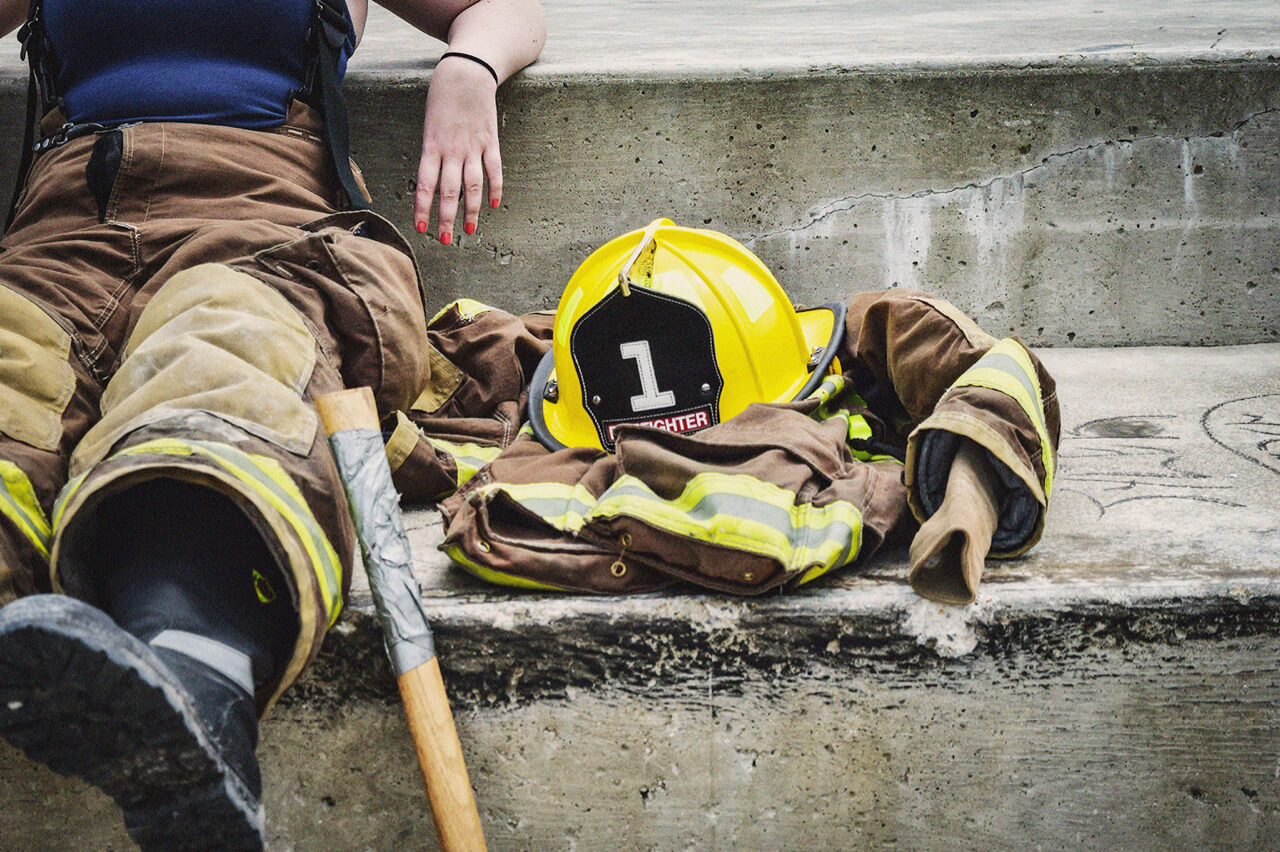Seeking a career as a professional firefighter can be a challenging proposition. It can also be the start of the most rewarding undertaking possible. A career as a firefighter will offer you both challenges and rewards, many of which will be once in a lifetime experience. If you have the desire and courage, you can forge a career that will carry you as far as you want to go and accomplish things of which you may only dream now.
The process of applying for a position as a firefighter is different in almost every jurisdiction. The rules and processes for hiring firefighters are the responsibility of the jurisdiction that operates the fire department. This jurisdiction may be the city administration, county government, or a fire protection district. In addition, each state has its own rules that govern certification, levels of training, and requirements for testing.

This article outlines the basic process and parts of the recruiting, testing, and hiring requirements that are common to all fire departments. The order of the events may differ, and the details of the individual processes may vary, but, in general, all professional career fire departments will use all or some of the following parts of a hiring process for career firefighters.
Understanding the Job of a Firefighter
Regardless of what you may see on television or in the movies, firefighting is far from a glamorous job. One firefighter with whom I worked summed it up perfectly when he said, “Firefighting is hours and hours of boredom punctuated by moments of sheer chaos and terror.” He was not off by much.
Firefighting is rewarding and satisfying. It is also, at times, hard grueling work performed under the most extreme conditions. Calamity and disaster do not observe the clock or wait for better weather. By and large, the worst situations will happen when conditions or timing are less than optimal.
Also, shift work can be stressful both to the firefighter and to the firefighter’s family. Looking back at my career, for 25 years of active duty, I spent fully 1/3 of my life away from my home and my family. We worked a 24/48 shift rotation. I missed birthdays, Christmases, family gatherings, graduations, and many other important milestones. This kind of stress causes the divorce rate among firefighters to exceed the national average.
If you can get past those minor negatives, firefighting can lead to satisfying and enjoyable career experiences. You will become a brother in a long tradition of service. The firefighting family is a large one. Firefighters share experiences and the knowledge that every firefighter is someone who has faced the same realities and experienced the same challenges. These shared experiences build a kindred spirit that gives all firefighters a special relationship that crosses departments, jurisdictions, and continents.
Applying & Getting Started in the Industry
Most jurisdictions have a set of basic requirements that you must meet before you can apply for a position as a firefighter. These basic minimum requirements can include:
- Minimum age of 18 years of age
- Possess a current driver’s license for the state in which the jurisdiction resides
- Read and write English
- Be able to pass a rigorous physical fitness test
- Pass written and oral examinations of general knowledge
- Have at least a high school diploma
Some fire departments have more stringent requirements and may require you to have one or more of the following.
- A certificate of completion from an approved fire training academy
- An EMT or paramedic certification
- Two or more years of college
A visit to the human resource department of the jurisdiction that usually hires firefighters for the fire department you want to serve will get you the information about the minimum requirements. The human resource department can answer all your questions and should be able to provide you with the timelines and requirements for submitting an application package.
Some jurisdictions have now put the entire application package online. The typical application package may include:
- A written application form. You will receive a written application form that may be several pages long. You can expect the usual questions about your background, your education, and your references. You can also expect to provide information on the following items:
- Your background and history starting with your high school education.
- Any legal proceedings both criminal and civil
- A release for the fire department to do a complete background check, including a check for a criminal record
- Permission to conduct a financial check
- A job description. The official job description is usually included. Most jurisdictions include a copy of the official job description to ensure that all applicants are aware of the requirements of the job.
- A copy of the calendar. The calendar is essential. Each step of the application process will include a deadline, after which that application process will close, and anyone who has not completed the required parts of the application face exclusion from the process.
- A detailed explanation of each part of the application process. The packet may also include a list of study materials that can aid you in passing the written exams and tips of preparing for the oral and physical exams.
- A schedule of each part of the exam process. This will include the dates, times, and places of each of the exams that you must complete successfully.
Once you have the application packet, complete each form carefully and thoroughly. Make sure that you submit the packet back to the proper place and person before the due date. When filling out the application forms, there are some basic rules you need to follow:
- Answer every question completely. Do not leave any blanks. If the question does not apply to you, put an N/A in the blank.
- Be honest. Do not try to hide anything that you may find embarrassing or that you think may disqualify you from the process. Chances are if it is disqualifying, it will show up in the background check anyway, and if you have been honest, it may not be a disqualifying event in the end.
- Be precise. If the form asks for dates, give the correct date to the absolute best of your knowledge. Give full addresses and phone numbers where appropriate.
- Be neat. Remember, this is your chance to make that great first impression. A sloppily prepared application package is not a good introduction to the fire officers and administrator who will review your application.
- Be complete. If the application requests copies of diplomas or other records, provide clear, neat copies of those documents according to the instructions in the application package.
Requirements to Become a Firefighter: Pre-Certifications
Some departments may require you to have completed a training academy or certification course before you are hired by the department. Pre-certification may include both firefighter certifications and EMT or Paramedic certifications.
There are several methods of attaining these pre-certifications. The best source of information about where you can get pre-certified is from the training division of the fire department you want to join. Unfortunately, both jurisdictional and state requirements vary so much that it is hard to give broad advice about certification programs.
Other Local Requirements
Jurisdictions may impose other requirements, such as residence requirements. These additional rules may not apply to you unless you are hired, but you should be aware of them before you accept the job.
Finding out that you are required to live in the jurisdiction of the department for which you have gone to work may require you to move you and your family by only a few miles to meet the requirement.
Make sure you are familiar with any local rules above and beyond the basic job requirements before you begin the application process.
After You’ve Submitted Your Application
When your application package is submitted, things begin to happen behind the scenes. Human resource personnel will check your package to make sure it is complete. They may or may not contact you for additional information or to correct obvious errors or flaws in the package.
Your application will then be sent to the appropriate individuals at the fire department who oversee the examination and evaluation process. In many departments, this is the training division that is charged with training new recruits and providing ongoing training to the department.
You will receive communications from the department about schedules and exam instructions. Follow these rules and instructions carefully. If you have questions, contact the persons indicated in the application package at the human resource department or the fire department.
We continue the conversation about becoming a firefighter in part two of this blog series: Understanding the Testing & Interview Process


